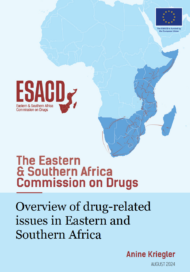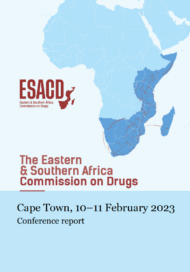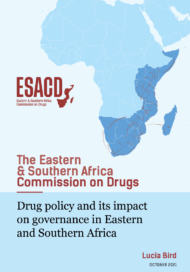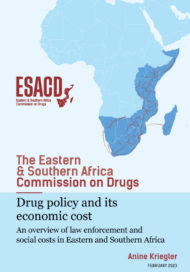Posted on 28 Aug 2024
Most countries in Eastern and Southern Africa (ESA) have tried to eliminate drug use largely by criminalizing production, trade and possession, in a reflection of global trends. However, this approach has not achieved its objectives. In recent years, there has been a transformation in the region’s drug-related problems and the best available evidence on how to address them. There is an urgent need for a comprehensive reassessment of drug policy. This paper introduces some of the key issues surrounding the region’s drug and policy crises.
Key points:
- There is growing global and regional recognition that the prevailing ‘war on drugs’ policy approach has been ineffective in reducing drug-related harms, and that a new approach is needed that brings drug policy into alignment with health, human rights, and social and human development considerations.
- Whereas drug supply chains once largely passed through ESA to other destinations, a wide and expanding array of drugs are now commonly consumed locally. Drug policies need to be revised to reflect these realities.
- Drugs are a major source of revenue for criminal groups, fuelling corruption and undermining governance.
- Isolated law enforcement disruption activities are unlikely to succeed in reducing the activities of criminal networks, but can have cascading negative effects. Law enforcement interventions should focus on the most dangerous and/or profitable elements of criminal organizations.
- The criminalization of drug use has undermined the availability of appropriate treatment programmes, facilitated the spread of communicable diseases and reduced already inadequate access to essential medicines.
- Punitive policies take a heavy toll on vulnerable populations, including women and young people. New frameworks must recognize their intersecting but distinct experiences and needs in relation to drugs and drug policies.
- Stigmatization of people who use drugs (PWUD) is widespread, making them less likely to receive the support that could help them improve their lives.
- Vast amounts of money are spent on policy approaches that have little or no prospect of achieving their aims.
- Redirecting resources away from criminal justice and towards evidence-based practices in health and harm reduction could reduce drug-related government costs and yield significant benefits for the region.




